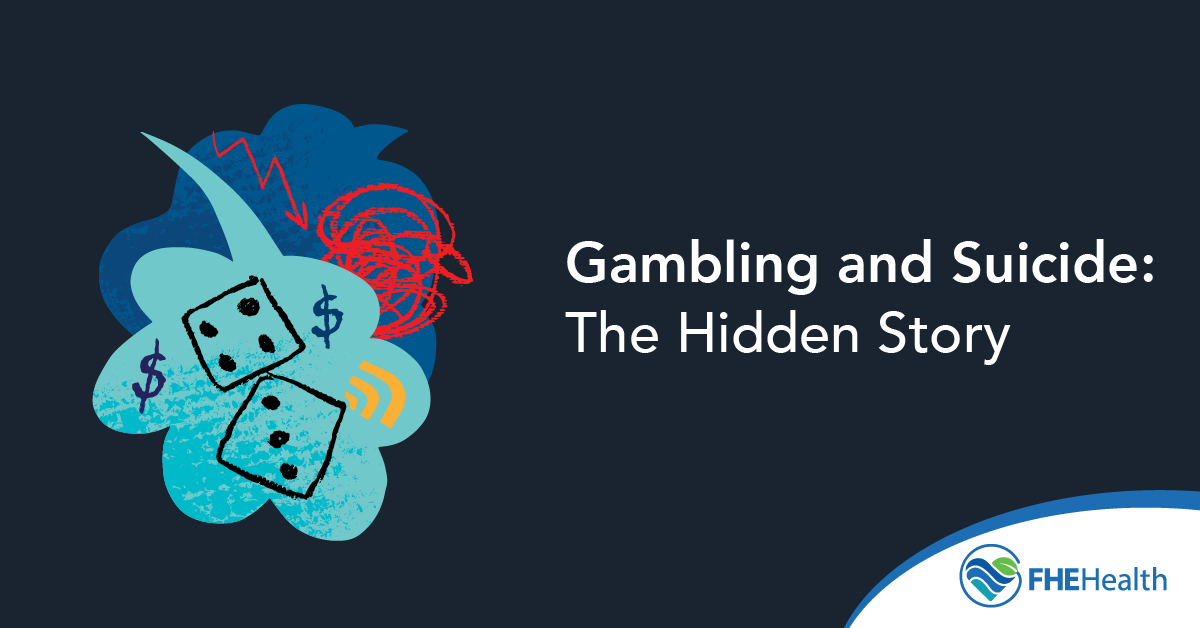
Gambling is often seen as harmless entertainment — a night out, a chance to win big or just a fun way to pass the time. For some, however, it becomes much more than that. Gambling addiction can spiral out of control and lead to serious consequences, including gambling-related suicides.
The financial strain, isolation and emotional turmoil caused by problem gambling can take a major toll on mental health. To someone who’s already vulnerable, the burden can feel impossible to bear. Read on to uncover the connection between gambling addiction and suicide, the warning signs to watch out for and how to seek professional help.
Understanding the Connection Between Gambling and Suicide
The link between gambling and suicide is complex but undeniable. Gambling addiction can create a downward spiral that impacts every aspect of a person’s life. Financial losses, strained relationships and feelings of shame or failure are common experiences for those struggling with problem gambling. Combined with preexisting mental health issues, these challenges can significantly increase the risk of suicide.
It’s important to remember that gambling doesn’t occur in a vacuum. Unexpected stress or trauma can make a person more vulnerable to addiction. Once gambling becomes compulsive, it often worsens these issues, creating a vicious cycle that’s difficult to break without help.
Warning Signs of Gambling Addiction and Suicide
An estimated 1% of adults and 2% to 7% of youth in the general population develop a gambling disorder. Many people addicted to gambling hide their struggles, making it difficult for others to notice the problem until it becomes severe. However, there are common signs to look for that may signal someone needs help:
- A preoccupation with gambling, such as constantly thinking about bets or upcoming games
- Increasingly risky behavior, such as wagering larger amounts to recover losses
- Hiding gambling activities from loved ones or lying about losses
- Struggling to stop gambling, even when it causes financial or personal harm
- Neglecting responsibilities at work, school or home due to gambling
Suicidal Thoughts Linked to Gambling
When gambling spirals out of control, feelings of hopelessness can follow. Signs that someone may be considering suicide include:
- Expressions of worthlessness, guilt or feeling like a burden
- Withdrawal from friends, family and activities they once enjoyed
- Sudden changes in mood, such as irritability, anxiety or despair
- Reckless behavior, which can include even riskier gambling habits
- Talking about death or making direct or indirect statements about not wanting to live
The Stigma Surrounding Gambling-Related Suicides
One of the biggest barriers to addressing gambling-related suicides is the stigma surrounding both gambling addiction and mental health struggles. For many, admitting to a gambling problem feels like admitting failure. Shame and guilt often prevent individuals from seeking help, trapping them in silence as their situation worsens.
Society tends to view gambling addiction differently from other forms of addiction. It’s often seen as a matter of self-control rather than a serious mental health issue. This misconception minimizes the problem and isolates those who are struggling. The stigma can also extend to the loved ones of someone with a gambling problem, who may feel judged or blamed for not recognizing the signs sooner.
When suicide becomes part of the equation of gambling and mental health, the stigma deepens. Those at risk of attempting suicide may face uncomfortable questions and assumptions. Frequent judgments often lead to an individual feeling misunderstood and too ashamed to seek support.
How Casinos Enable Gambling
Casinos use well-known strategies to encourage gambling and keep customers playing longer. These tactics are designed to make people lose track of time, spend more money and stay engaged. Unfortunately for problem gamblers, this comes at the expense of mental and financial well-being.
Some common “tricks of the trade” include:
- Flashy advertising. Eye-catching billboard
s and promotions draw people in with promises of excitement and big wins. - No clocks or windows. Casinos are designed to obscure the passage of time, making it easy to lose hours without realizing it.
- Stimulating environments. Bright carpets, flashing lights and constant noise are all designed to keep players focused on gambling.
- Targeting the brain’s reward system. Lights and sounds are strategically tied to wins, which creates a sense of satisfaction that reinforces continued play.
- Free perks. Complimentary drinks, meals and prizes give customers a reason to stay longer and gamble more.
- Intermittent wins. Small, occasional payouts are designed to keep players engaged, making it harder to stop.
Online casinos take this a step further by offering 24-7 access and targeting users directly. After gambling online, many people receive a flood of emails, ads and pop-up offers that make it hard to step away. Paired with these constant reminders, the convenience of gambling from home makes online platforms especially addictive.
How to Seek Help and Support for Gambling Addiction
Overcoming gambling addiction starts with recognizing the problem and seeking appropriate treatment. At FHE Health, we offer specialized programs to help individuals reclaim their lives. Our treatment methods include evidence-based therapies such as cognitive behavioral therapy (CBT), family interventions and counseling to treat co-occurring gambling and mental health problems. In addition, our neuro rehab services use advanced brain mapping and stimulation to treat the underlying brain functions contributing to addiction. This targets both the addiction and any underlying issues contributing to compulsive gambling.
If you or someone you love is struggling with gambling addiction, help is available. FHE Health offers comprehensive, evidence-based treatment programs, including support for individuals experiencing suicidal ideation. Don’t wait to take the first step toward full recovery. Contact FHE Health today to learn more and connect with our compassionate team.






